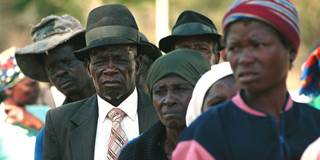Protecting Zimbabwe
Earlier this year, the African Union, through the good work of former UN Secretary General Kofi Annan, averted a calamity in Kenya after a disputed election led to widespread violence. The danger in Zimbabwe appears to be comparable, and similar intervention is required.
JOHANNESBURG – Although the Chinese ship that was carrying arms to Zimbabwe, the An Yue Jiang, has reportedly turned back, we don’t know where else President Robert Mugabe’s military and paramilitary forces may be acquiring weapons. In light of the escalating violent repression of the opposition Movement for Democratic Change – and of those whose support apparently helped the MDC to prevail in the presidential election, the results of which have still not been announced after four weeks – an international arms embargo on Zimbabwe is urgently needed.



JOHANNESBURG – Although the Chinese ship that was carrying arms to Zimbabwe, the An Yue Jiang, has reportedly turned back, we don’t know where else President Robert Mugabe’s military and paramilitary forces may be acquiring weapons. In light of the escalating violent repression of the opposition Movement for Democratic Change – and of those whose support apparently helped the MDC to prevail in the presidential election, the results of which have still not been announced after four weeks – an international arms embargo on Zimbabwe is urgently needed.